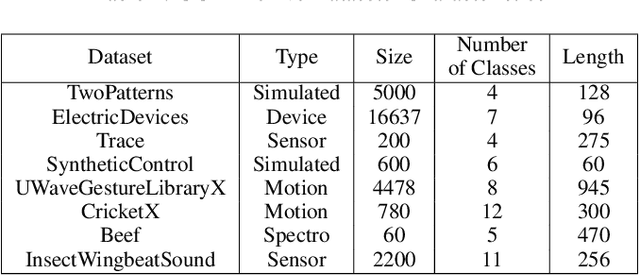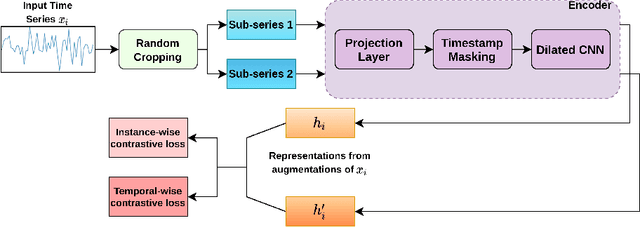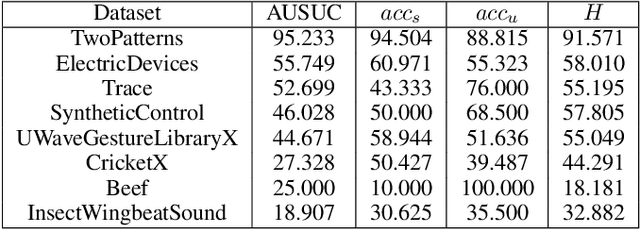LETS-GZSL: A Latent Embedding Model for Time Series Generalized Zero Shot Learning
Paper and Code
Jul 25, 2022



One of the recent developments in deep learning is generalized zero-shot learning (GZSL), which aims to recognize objects from both seen and unseen classes, when only the labeled examples from seen classes are provided. Over the past couple of years, GZSL has picked up traction and several models have been proposed to solve this problem. Whereas an extensive amount of research on GZSL has been carried out in fields such as computer vision and natural language processing, no such research has been carried out to deal with time series data. GZSL is used for applications such as detecting abnormalities from ECG and EEG data and identifying unseen classes from sensor, spectrograph and other devices' data. In this regard, we propose a Latent Embedding for Time Series - GZSL (LETS-GZSL) model that can solve the problem of GZSL for time series classification (TSC). We utilize an embedding-based approach and combine it with attribute vectors to predict the final class labels. We report our results on the widely popular UCR archive datasets. Our framework is able to achieve a harmonic mean value of at least 55% on most of the datasets except when the number of unseen classes is greater than 3 or the amount of data is very low (less than 100 training examples).
 Add to Chrome
Add to Chrome Add to Firefox
Add to Firefox Add to Edge
Add to Edge